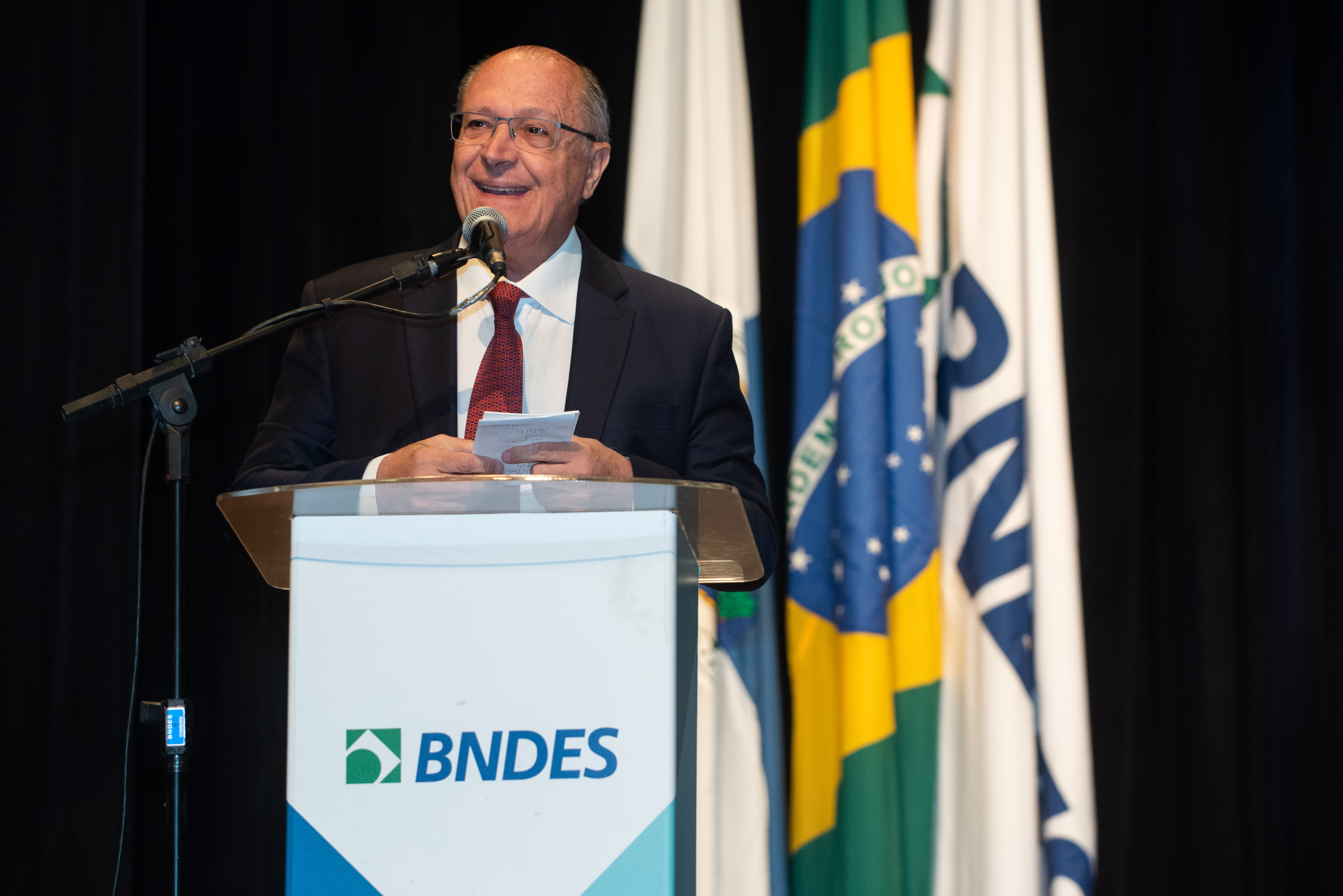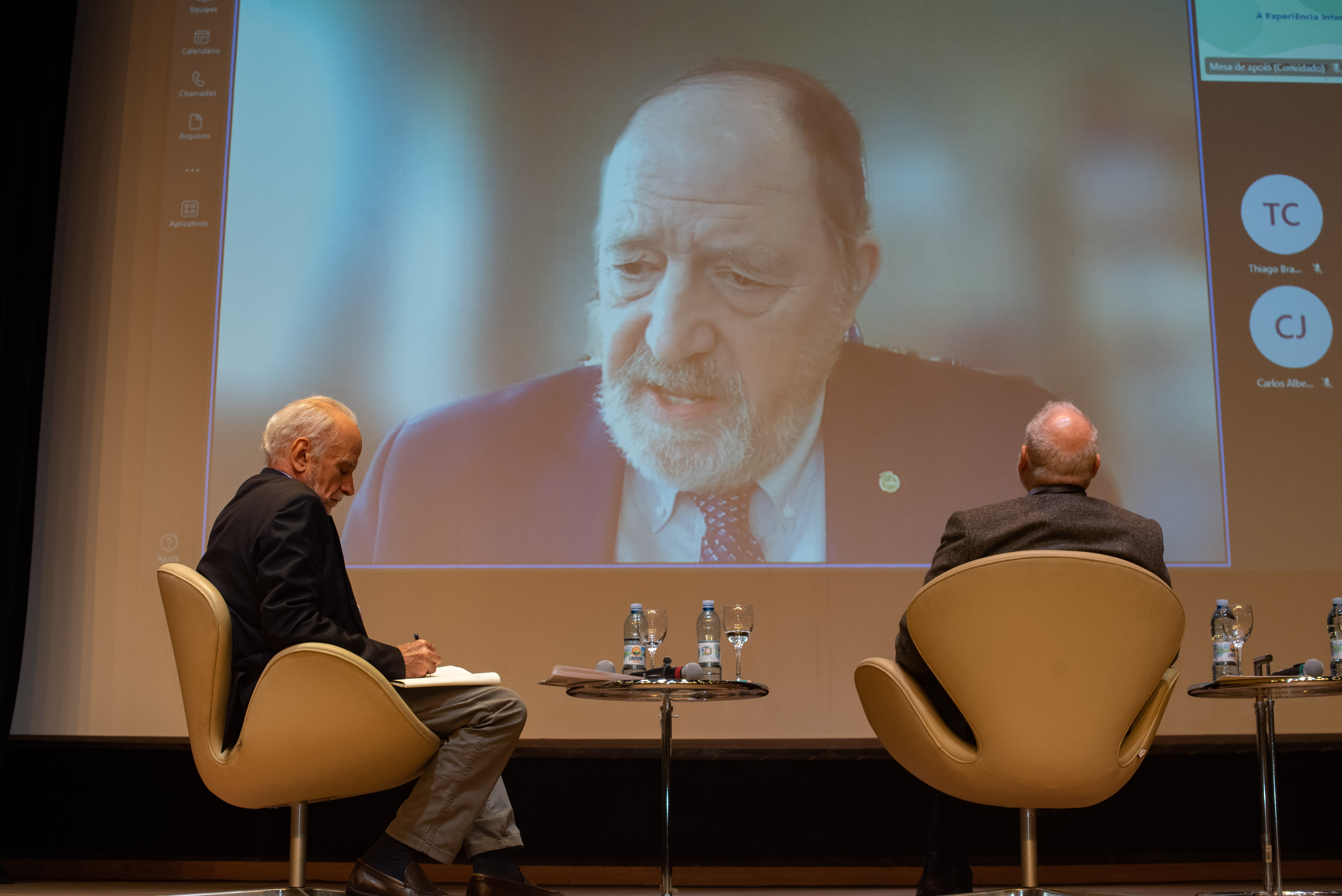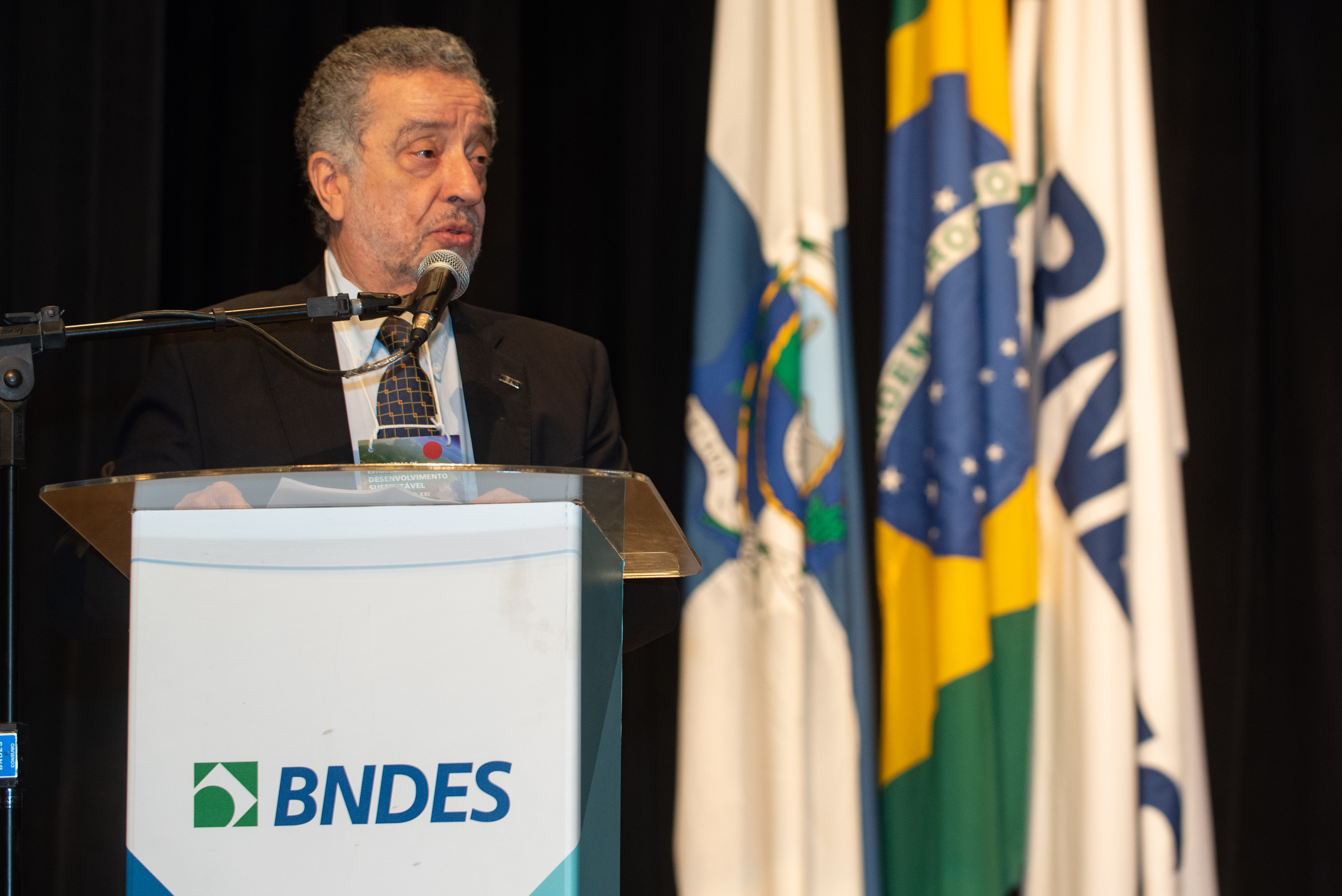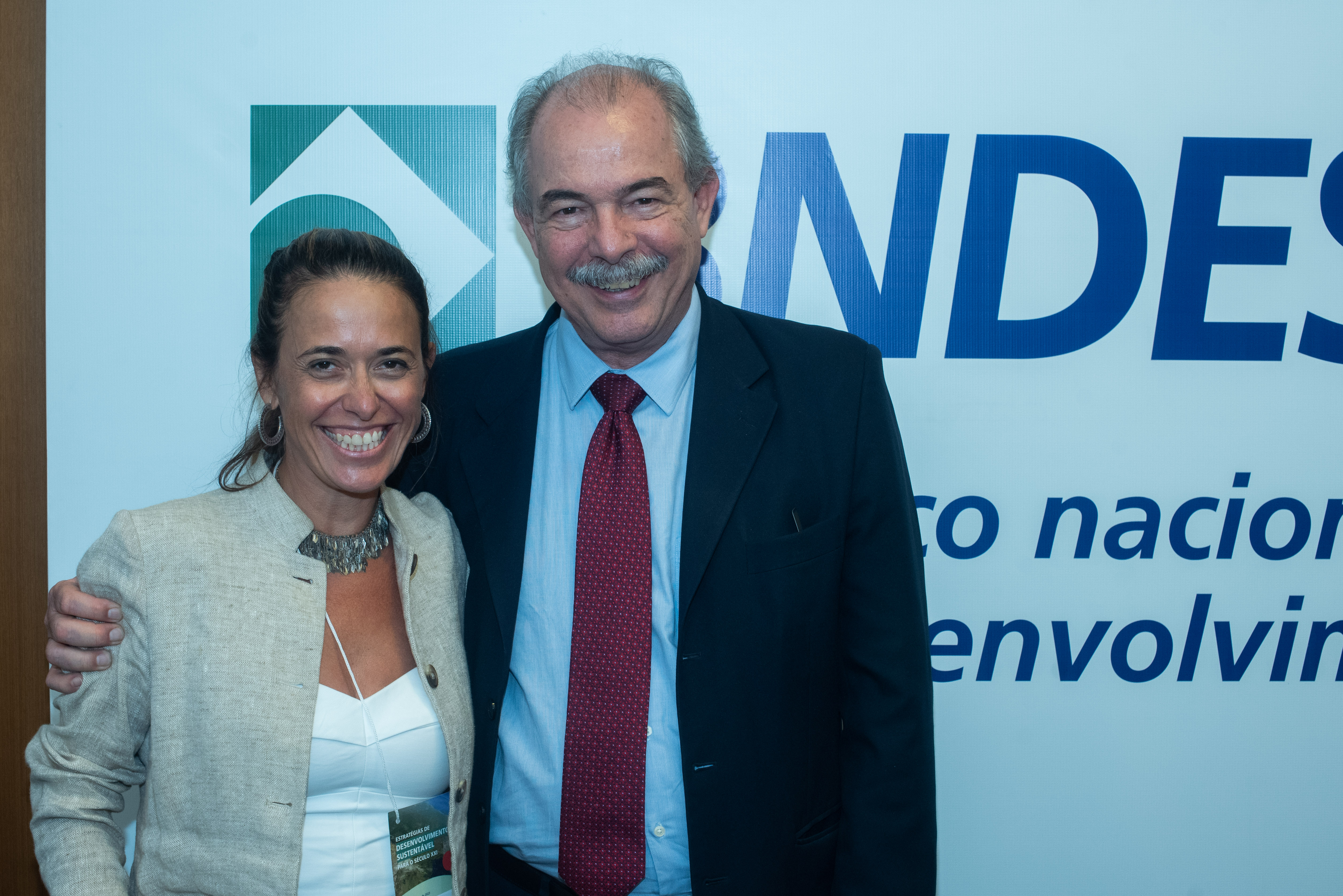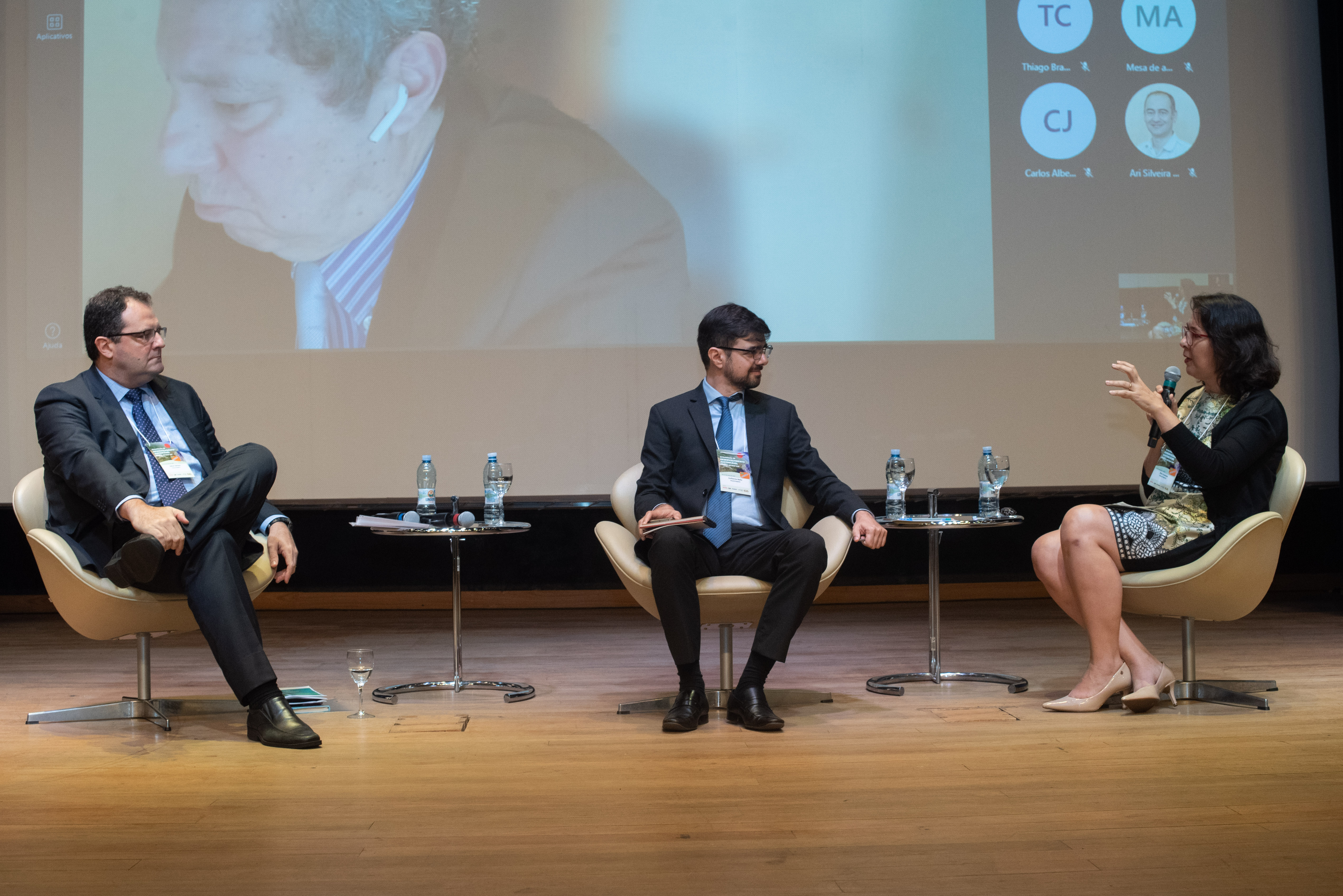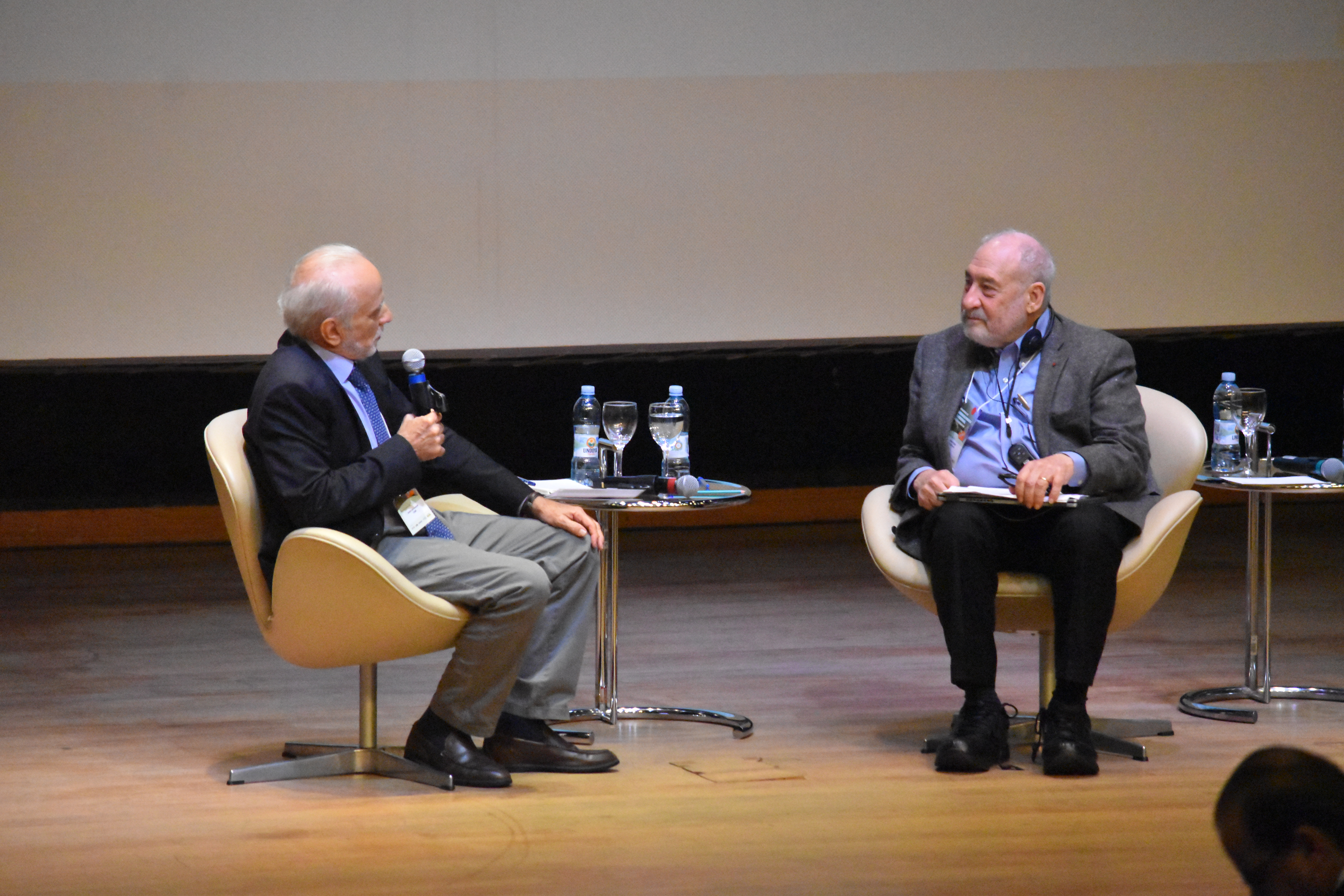CEBRI, BNDES, and FIESP debate sustainable development
- 22 march 2023
On the first day of the international seminar "Strategies for Sustainable Development in the 21st Century" (3/20), organized by the Brazilian National Development Bank (BNDES), in partnership with the Brazilian Center for International Relations (CEBRI) and the Federation of Industries of the State of São Paulo (Fiesp), specialists and authorities debated how to boost investments and long-term development for Brazil in face of the new geopolitical challenges of this century. The event was held at the BNDES Theater, in Rio de Janeiro.
Brazil's Vice-President and Minister of Development, Industry, Commerce, and Services, Geraldo Alckmin; the President of BNDES, Aloizio Mercadante; CEBRI's Chairman, José Pio Borges; the President of FIESP, Josué Gomes da Silva, and the Minister of Management and Innovation in Public Services, Esther Dweck were among the speakers.
The following are the statements that most resonated in the national and international press:
- Joseph Stiglitz, professor at Columbia University and winner of the Nobel Prize in Economics, condemned the current level of interest rates in Brazil. "Your interest rate is really shocking. The numbers of 13.75% and 8% are what will kill any economy. What is amazing is that Brazil has survived what is a death sentence. What is surprising is that you have survived," he said, adding that part of the reason for this survival lies in the existence of a development bank, the BNDES.
- Jayati Ghosh, a professor at the University of Massachusetts Amherst, USA, was interviewed by Globo News and said that economists outside Brazil are appalled with such high interest rates in Brazil. The specialist pointed out that the country is "self-flagellating" with an obsession for primary surplus and high interest rates, "a legacy of the 1980s, when Brazil had high debt and uncontrolled inflation."
- James Galbraith of the Lyndon B. Johnson School of Public Affairs said that, even in the face of risks, it is imperative that changes are made in fiscal and monetary policies to ensure greater efficiency of macroeconomic and financial bodies. "It is necessary to think of an alternative for policies, because the current ones have failed." The professor stated that Brazil is, today, in a more comfortable situation than the United States and Europe, which are suffering the effects of the banking crisis that began with the bankruptcy of SVB (Silicon Valley Bank).
- Josué Gomes da Silva, President of Fiesp, emphasized that the industry's participation today accounts for only 12% of the GDP. For Josué, the new industrialization process should be focused on low carbon, with integration to global value chains, innovation and a high degree of digitalization. Through the analysis of FIESP's president, it is also inconceivable that the current level of interest rates are associated with the fiscal issue. "This is not a good explanation for the pornographic interest rates that are practiced in Brazil."
- Aloizio Mercadante, President of the BNDES, reinforced that many countries are rethinking their industrial policy, the relationship between states and markets, and the post-pandemic fiscal responsibility frameworks. For Mercadante, the latest crises have made the fragilities and the reorganization of the global production chains explicit. Mercadante also highlighted Brazil's clean energy matrix as a strong point for the country within the international scenario, but criticized the Brazil cost. While Germany finances projects in this sector with zero interest rates, "we have high and uncompetitive rates".
- José Pio Borges, CEBRI's Chairman, highlighted that the think tank proposes strategies for the economic development and international projection of Brazil, such as the policy paper "Elements for a Strategy to Resume Sustainable Growth and Social Inclusion", from CEBRI's Political Economy Thematic Program, created with FIESP's support, which presents concrete recommendations for the formulation of public policies.
- Geraldo Alckmin, Brazil's Vice-President, said that the country's most immediate challenges in terms of promoting sustainable development are tax management and the lack of a strategic look at taxation and the reduction of the cost of capital. "There is nothing that justifies 8% real interest rates above inflation when there is no exploding demand and when the whole world has practically negative interest rates," said Alckmin, also Minister of Development, Industry and Foreign Trade, the agency to which the BNDES is subordinated. According to him, the Selic rate "hinders consumption and delays investments"
- André Lara Resende, economist and CEBRI board member who organized the event, pointed out that "the combination of very high interest rates and very high taxes in Brazil is a deeply recessive combination that prevents the economy from growing."
Check out the first day of the seminar in its entirety HERE.
